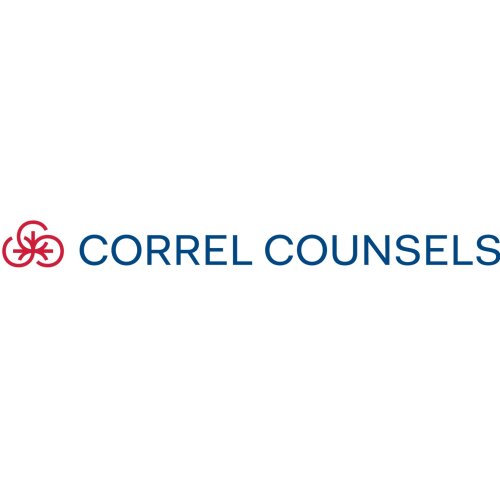Best Project Finance Lawyers in Malé
Share your needs with us, get contacted by law firms.
Free. Takes 2 min.
List of the best lawyers in Malé, Maldives
About Project Finance Law in Malé, Maldives
Project finance refers to the legal and financial structuring of large infrastructure or industrial projects, where repayment is made primarily from the cash flow generated by the project itself. In Malé, Maldives, project finance is pivotal for developing sectors like tourism, energy, transportation, and public infrastructure, especially given the country’s reliance on major capital-intensive developments. The legal process typically involves detailed contracts, risk assessment, government approvals, and complex funding arrangements involving local and international banks.
Why You May Need a Lawyer
Engaging a lawyer is crucial when dealing with project finance in Malé, Maldives due to the intricate nature of these transactions and regulations. Here are some common situations where legal help is necessary:
- Drafting and negotiating finance or concession agreements for large projects.
- Ensuring compliance with local investment regulations and obtaining necessary permits or licenses.
- Assessing project risks and securing proper guarantees for lenders and investors.
- Dealing with cross-border financing arrangements and repatriation of profits.
- Seeking legal guidance on public-private partnerships (PPP) or collaboration with governmental bodies.
- Resolving disputes between parties involved in the project finance process.
Local Laws Overview
The legislative landscape for project finance in Malé is shaped by a combination of national laws, regulations from regulatory authorities, and sector-specific guidelines. Key aspects include:
- Foreign Investment: Foreigners must comply with the Foreign Investment Act, which outlines processes for investments and requirements for permits.
- Banking and Finance: The Maldives Monetary Authority regulates financial transactions and the involvement of foreign and local banks in project finance.
- Land Leasing and Rights: Ownership of land by foreigners is generally restricted, but long-term leases are allowed for projects, especially in the tourism sector.
- Securities and Guarantees: Lenders often require collateral or guarantees, which must align with Maldivian law and require careful documentation.
- Environmental Authorizations: Many projects must pass environmental impact assessments (EIA) as required by the Environmental Protection Agency.
- Company Formation and Contracts: Each project typically operates through a Special Purpose Vehicle (SPV), registered locally to own assets and sign contracts.
- Arbitration and Dispute Resolution: Contracts often designate Maldivian courts or international arbitration for resolving disputes.
Frequently Asked Questions
What is project finance?
Project finance is a way to fund infrastructure or large-scale projects where repayment is dependent on the project’s success and revenue generation, not the balance sheet of the sponsors.
Who typically provides project finance in Maldives?
Project finance can come from commercial banks, multilateral financial institutions, government agencies, private investors, or a mix of local and foreign sources.
Do I need a Maldivian partner to secure project finance?
Depending on the sector, a local partner may be required under investment laws, especially for projects involving land or natural resources. Legal guidance can clarify partnership structures.
Are foreign investors allowed to participate in project finance?
Yes, foreign investors are welcome but must comply with the Foreign Investment Act and obtain all required permits and approvals.
What approvals are necessary before starting a project?
Common approvals include investment registration, environmental impact assessment, sector-specific licenses, and land lease agreements.
What role do government agencies play in project finance?
Government agencies often act as regulators, landlords (in the case of leased land), or contracting parties. Their approval and ongoing oversight may be necessary.
How are project risks managed?
Risks in project finance are managed through careful contract drafting, insurance, guarantees, and by allocating risks to the party best able to handle them.
What happens if there is a dispute between parties?
Most contracts specify dispute resolution methods like Maldivian court litigation or international arbitration, depending on the parties’ agreement.
Is it required to form a local company for project finance?
Most projects are structured through a Special Purpose Vehicle (SPV) registered in the Maldives to isolate project assets and liabilities.
How long does the regulatory approval process usually take?
The timeline varies depending on the project’s scale and complexity, but it often takes several months to a year to complete all approvals and due diligence.
Additional Resources
If you are seeking further information or assistance, the following organizations are instrumental in the project finance landscape in Malé, Maldives:
- Maldives Monetary Authority (MMA)
- Ministry of Economic Development
- Invest Maldives (investment promotion authority)
- Registrar of Companies
- Maldives Inland Revenue Authority (MIRA)
- Environmental Protection Agency (EPA)
- Maldivian Bar Council (for lawyer referrals)
- Maldives Law and Society
Next Steps
If you need legal assistance in project finance, start by identifying the scope and nature of your project. Gather all essential documents relating to your business plan, potential partners, and intended site. Next, consult a lawyer specializing in project finance or commercial law in Malé. A lawyer will help you understand regulatory requirements, draft and review contracts, ensure compliance, and represent you in negotiations or dispute resolution. For larger projects or foreign investment, it is advisable to engage legal counsel early in the process to ensure a smooth and lawful transaction.
Lawzana helps you find the best lawyers and law firms in Malé through a curated and pre-screened list of qualified legal professionals. Our platform offers rankings and detailed profiles of attorneys and law firms, allowing you to compare based on practice areas, including Project Finance, experience, and client feedback.
Each profile includes a description of the firm's areas of practice, client reviews, team members and partners, year of establishment, spoken languages, office locations, contact information, social media presence, and any published articles or resources. Most firms on our platform speak English and are experienced in both local and international legal matters.
Get a quote from top-rated law firms in Malé, Maldives — quickly, securely, and without unnecessary hassle.
Disclaimer:
The information provided on this page is for general informational purposes only and does not constitute legal advice. While we strive to ensure the accuracy and relevance of the content, legal information may change over time, and interpretations of the law can vary. You should always consult with a qualified legal professional for advice specific to your situation.
We disclaim all liability for actions taken or not taken based on the content of this page. If you believe any information is incorrect or outdated, please contact us, and we will review and update it where appropriate.

















